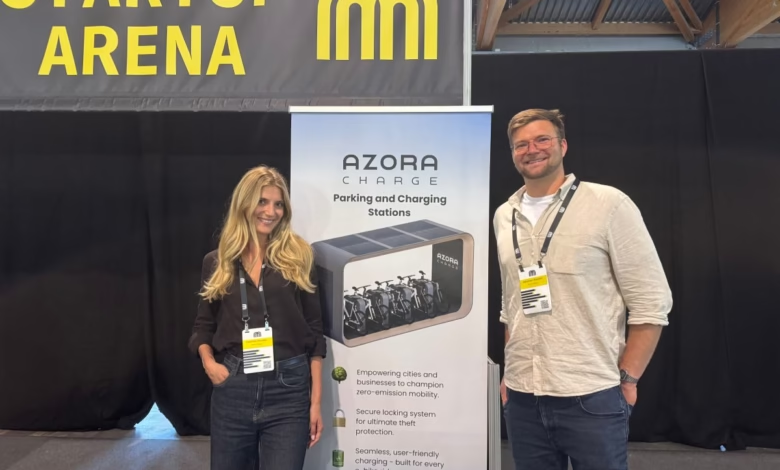Europe’s Rising Micromobility Startups to Watch

▼ Summary
– The micromobility industry has shifted from rapid scaling with venture capital to focusing on sustainable business models and filling gaps like fleet management, parking, and charging.
– UK-based Convoy offers a lightweight, clip-on cargo conversion kit for bikes, targeting parents with a €2,200 product that transforms pedal bikes into e-bikes.
– Azora Charge, a German startup, develops solar-powered charging and parking stations for e-bikes, priced at €28,000, aiming to address theft and charging challenges in urban areas.
– Fleetser operates a marketplace for buying, selling, and refurbishing shared e-bikes and scooters, helping operators manage supply chains and logistics affordably.
– Italian startup Switch uses AI for fleet management, offering simulation tools and real-time optimization, with a pilot program involving Lime.
Europe’s micromobility sector is undergoing a transformation, moving beyond the initial frenzy of e-scooter startups to focus on sustainable, practical solutions. The industry now prioritizes innovation that addresses real-world challenges, from fleet management to urban infrastructure. At Micromobility Europe in Brussels, emerging startups showcased how they’re reshaping transportation with clever engineering and smart technology.
Convoy stands out by tackling a common frustration for parents, bulky e-cargo bikes. Their clip-on conversion kit turns standard bikes into child carriers with a 250-watt motor and rear-wheel steering. Priced at €2,200, the lightweight design appeals to urban families, and early demand has the UK-based company eyeing expansion into Japan and the U.S.
For e-bike owners struggling with theft and charging, Azora Charge offers solar-powered stations that fit into a single parking space. The German startup’s modular design includes covered and uncovered options, targeting cities, apartments, and businesses. With a pilot launching in Heidelberg, Azora aims to make secure parking and charging accessible.
Fleetser operates as a marketplace for shared micromobility fleets, helping operators buy, sell, and refurbish bikes and scooters. By streamlining supply chains and logistics, the company supports both newcomers and established players. Their hands-on approach includes warehousing in Romania and the Netherlands, with 6,000 bikes sold this year alone.
Italian startup Switch leverages AI to optimize fleet management, working with clients like Lime. Their Urbiverse platform generates synthetic data for simulations, while Urban Copilot provides real-time demand forecasting. An AI agent integrates with tools like Slack, allowing operators to automate alerts and reports seamlessly.
Bosnian super app Zapp takes a franchise approach, offering everything from food delivery to e-scooters in smaller Balkan cities. By empowering local entrepreneurs, the company fills gaps left by global players like Uber. Expansion into Croatia is next on their roadmap.
French electric motorcycle brand J2R caters to urban riders with its compact, stylish Smol model. Designed for traceability and repairability, the €9,450 bike blends futuristic aesthetics with practicality. Limited pre-orders sold out quickly, with deliveries set for 2025.
Finally, Trace Mobility provides data-driven insights for shared mobility operators. Founder Tobias Meurer’s experience in bike-sharing led to a subscription-based platform that tracks performance metrics and suggests optimizations. The service is particularly valuable for smaller operators relying on white-label solutions.
These startups highlight Europe’s shift toward smarter, more sustainable micromobility solutions, proving that innovation thrives when practicality meets creativity.
(Source: TechCrunch)